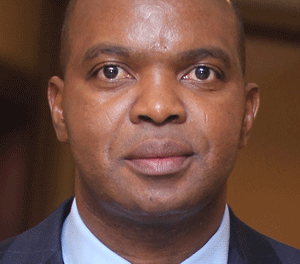
6000 potential clients for every single Namibian accountant

The first group of trainee accountants to complete their 4-year training under the new curriculum of the Namibia Insitute of Professional Accountants’ training programme, was inducted last week Friday. They are now full members of the organisation.
The institute’s chairperson, Amanda Rossouw said “I wish to extend my congratulations to the new members for having successfully completed their practical training programme. The Trainee Accountant Programme has become a vital avenue for tertiary students. It allows them to acquire practical experience in the areas of accounting, financial management, taxation, commercial law and ethics that they and, indeed, our country requires.”
The Trainee Accountant Programme is a 4-year course presented through Accredited Training Centres across Namibia. It is designed to equip trainees with the necessary practical skills for a career as a professional Accountant. The logbook of elements that trainees are required to complete consists of financial accounting, internal control, taxation, corporate law, ethics, and practice management. The skills they develop are integral not only to their own success, but also to the future of the profession at large.
“Although Namibian universities produce graduates, many are unable to secure employment due to the lack of experience. The training programme allows students to acquire knowledge and experience, placing them in a better position to secure employment or venture into their own business. The programme was created with the objective of training the next generation of accountants, partly by transferring practical experience and knowledge from practicing accountants to those coming through the ranks” Rossouw explained.
“Since 2013, our programme has achieved success. In the years prior to this, we struggled with a low success rate. However, since developing close working relationships between the principal, the trainee and the Namibia Iinstitute of Professional Accountants via the input of the monitoring officers, our success rate has significantly improved” she said.
The new group of trained accountants is the first group to qualify under the new dispensation.
As qualified accountant, they are now full members of the institute. They now have the opportunity to continue working for the companies where they worked during their training, or they can go on to start their own practices, building up their own client base.
“Many of you will be aware that we have a shortage of qualified accountants in Namibia. This is at odds with the public’s perception where the consensus is that accountants are in abundance. As an institution representing accountants in the public sector, academia, commerce, and industry we believe that the current number of accountants is insufficient. There are simply too few to deal with the individual tax payers and business entities registered for tax. To put this into context: there is an estimated taxpayer base of 520,000 individual and business entities in Namibia. With the current ratio of accountants, this means there are close to 6000 taxpayers per accountant” said Rossouw, explaining the pressing need for more qualified accountants.
Rossouw also stated that the general public should be educated via their accountants on tax compliance, along with general financial compliance and regulation issues. There are further challenges facing the accounting sector. Internationally, Rossouw points out, there is a great need to regulate accountants and bookkeepers that manage public affairs. It is currently the case that only auditors and professional accountants are regulated. It is for this reason that the institute welcomes the current discussions by the technical sub-committee on the draft Public Accounts and Auditors Amendment Bill.
Addressing the new members for the first time as qualified accountants, Rossous said “you have many opportunities and the chance to tailor your career to your personal needs and desires. You can work individually to serve the public or you can continue to serve your current employers. You can also seek and accept offers to work in various locations within the public and private sectors or alternatively further your career in academia. You can even become entrepreneurs.”












































